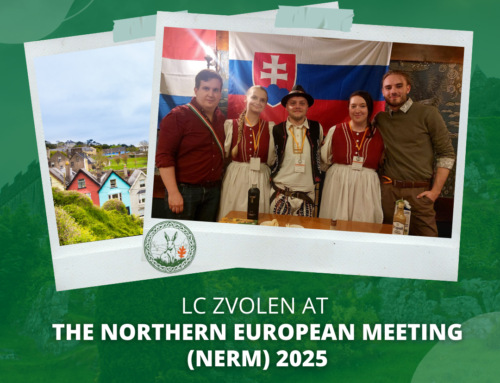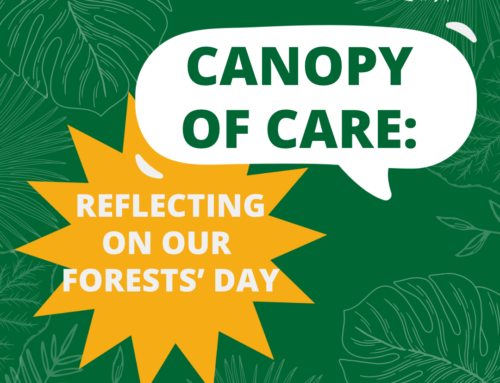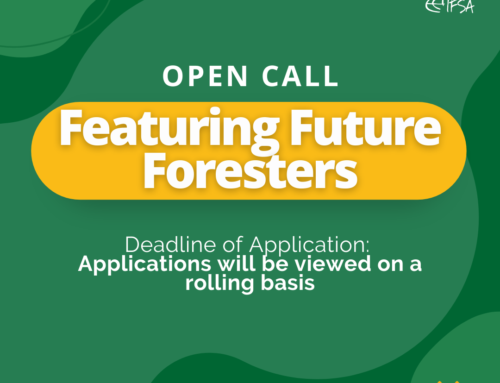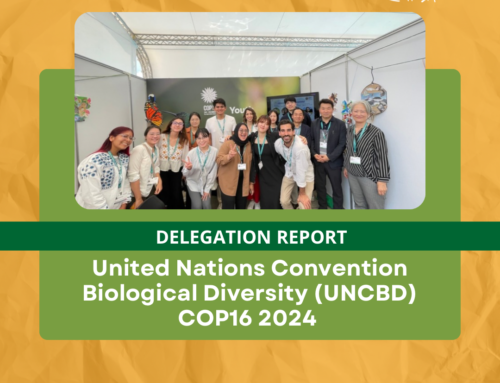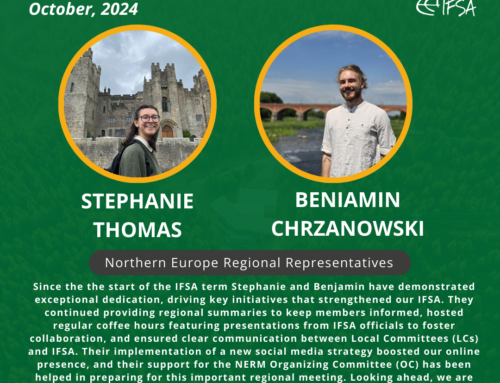Meet the Dare to Explore! trainees – Vera
Hi IFSA world!
My name is Vera and I am currently finishing my MSc in Sustainable Resource Management at Technical University Munich, where I am focusing on management and protection of forest ecosystems. My background is in ecotourism. Before I started my masters, I worked for an international development cooperation project in Costa Rica, where a reforestation initiative linked to environmental education sparked my interest in the connection between forests and people. I’m happiest when spending lots of time outside in any weather, learning new stuff and always carrying around an extra piece of chocolate in my backpack. Fun fact about me: My secret idol is Carlo Pedersoli (more than just an actor). 😉
Why did you apply for the DTE traineeship program and how did you hear about it?
Through my engagement with IFSA at LC Freising and internationally, I discovered a particular interest in urban forestry. After participating in the European Forum on Urban Forestry (EFUF) 2019 in Cologne as an IFSA delegate, I wanted to learn more about the effects of urban green spaces on well-being and the importance of experiences in nature for enhancing environmental stewardship. When I heard about the DTE Traineeship on urban forestry in one of our local LC meetings, it seemed just the right opportunity to dive deeper into the topic before starting a master thesis.
Give a little outlook on your specific placement: What is the topic? What are your expectations? What are you most excited about?
During the DTE Traineeship, I support the Urban Forestry Team in the Resilience Programme on tasks related to the Horizon 2020 CLEARING HOUSE project and the EFUF 2021. I truly enjoy getting into contact with many wonderful people I met before at EFUF – from other IFSA members to practitioners, researchers and policymakers around Europe. Additionally, I will compile a repository of case studies on urban forests and nature-based solutions, focused on practice and policy. I am looking forward to learning more about the contribution of different local urban forests to urban livability, public health, biodiversity and ecological connectivity.
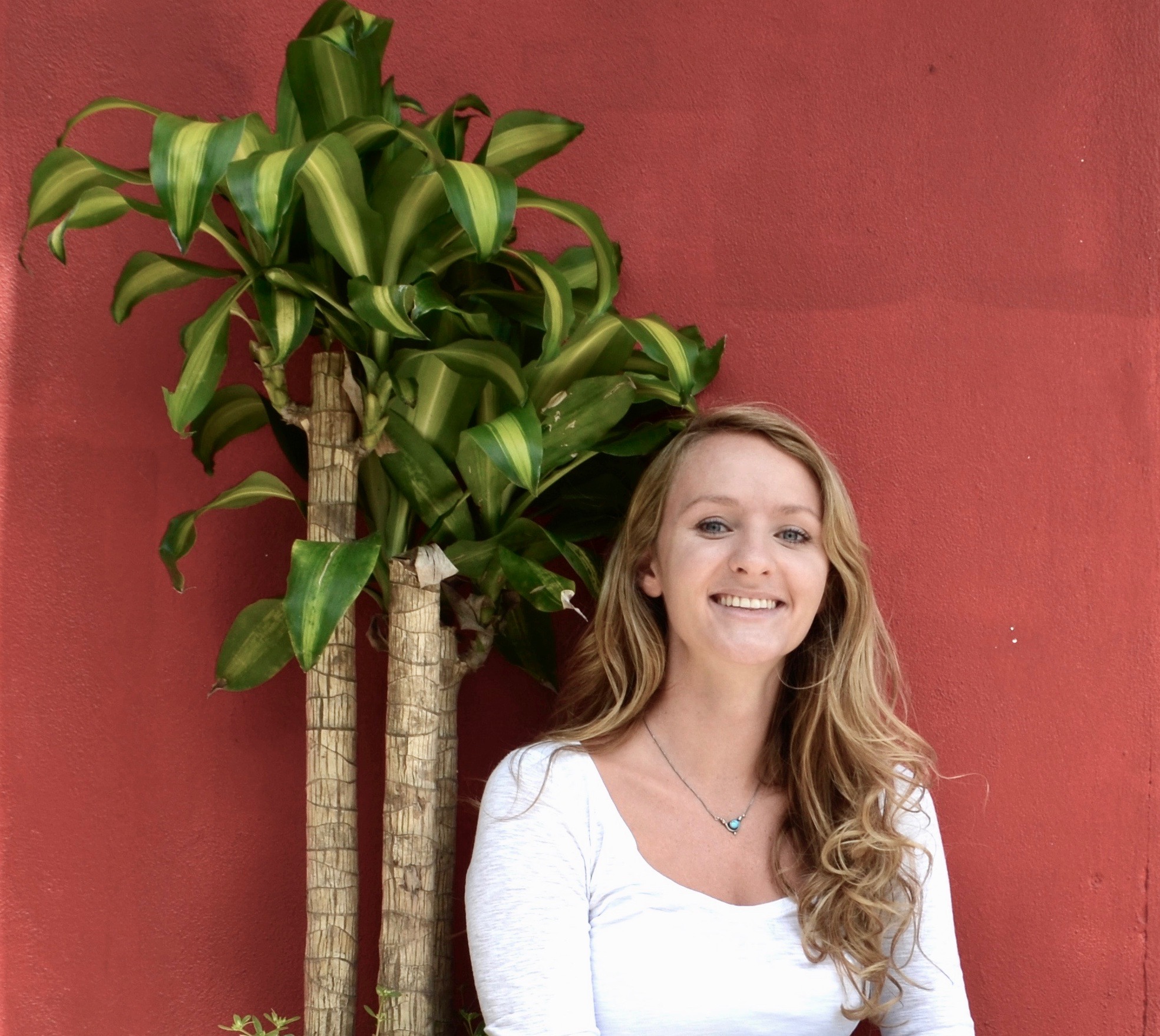
What is your relationship with IFSA?
Currently, I am an active member and Alumni Officer of the LC Freising. In the last years, I have participated as a delegate in events in Germany and Brazil. I am very happy for the chances the IFSA network provides to get together and share a common passion with other tree enthusiasts from around the world, which I think is a good base to discuss future challenges and alternative perspectives.
What is your relationship to forests and what is your favorite tree?
The scenery of my childhood included spending lots of time with my family in rural areas, with forests and alpine pastures around. My connection to forests grew over time, especially during the time working in Costa Rica, where I supported the conceptual elaboration of nature-based tourism activities linked to reforestation. Today, I enjoy being in remote forest areas as much as exploring urban pocket parks and botanical gardens. Hard to name a favourite tree, at the moment, I would go with pedunculate oak (Quercus robur) – probably because this species accompanies many memories of my childhood, but also because of its historical importance and ecological functions. For example, in a forest area close to where I grew up, around 50 so-called “Metusaleh oaks”, rooting there for about 250 – 300 years, provide a habitat for 238 xylobiont beetle species with almost a third of those on the Red List – you should come visit once travel regulations allow!
What do you see currently as the biggest challenge for forests/forestry/the forest sector?
One of the challenges I see is to find the right balance between planting new trees and preserving and maintaining old-grown trees, especially in urban environments with increasing competition for space. Understanding and measuring the significant impact of ecosystem services provided by mature trees should not be information limited to foresters and urban green space planners. I believe involving communities and providing engaging opportunities to learn about ecosystem services provided by mature trees is key to activating and influencing future decision-makers and to start including the preservation of old-grown trees earlier in planning processes.
